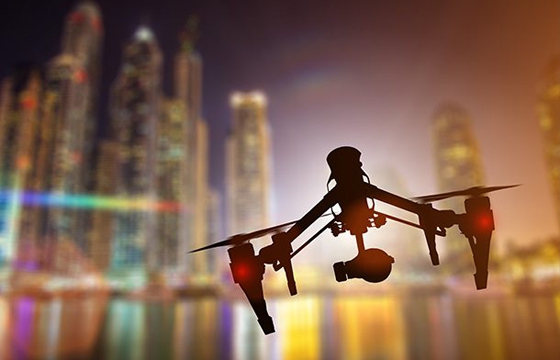Market research firm Euromonitor International released a white paper discussing the MENA region’s efforts in applied technology and the approach to “Smart” cities, highlighting the different efforts applied by countries of the region.
The paper, whose lead analyst was Kinda Chebib, highlighted the United Arab Emirates as one that “outpaces other MENA countries in terms of “Smart”.
Euromonitor’s analysts, through the paper, aimed to show how capitalizing on the Information and Communication Technology (ICT) domain can add “trillions” to the GDPs of the region’s economies and, consequently, adding to the revenue of companies operating in it.
Ahmad Bin Humaidan, director of the Dubai Smart City Government, defined a Smart City as one that utilizes digital technologies or ICT to “enhance quality and performance of urban services, to reduce costs and resource consumption and to engage more effectively and actively with citizens,” Euromonitor International cited.
According to the UK-based firm’s estimates, the global market potential for Smart cities would reach $3.3 trillion by 2025. Approximately half of all of the global cities expected to become Smart by that year will be from emerging markets.
The GCC region is expected to be a global driver in Internet of Things (IoT) innovations, such as robotics, 3D printing, drones and mobile payments, Euromonitor International estimates.
Citing industry experts from Gitex Technology Week, Euromonitor International said that the GCC’s Cloud market is expected to reach $668.5 million by 2020. This size of that market was estimated at $118.5m in 2014.
The UAE’s tech transformation
Dubai is considered a hub for regional businesses, many of which base their regional headquarters in the emirate and regard it as a gateway to other MENA countries and, at times, the neighboring regions of Africa and Asia.
The Dubai International airport has been ranked as the world’s busiest, through which close to 77,500 million passenger pass every year, according to the Airports Council International data.
This makes Dubai one of the most connected cities on earth, ultimately making the UAE a country that stands out from the crowd in the region. According to Euromonitor International, through its “advanced infrastructure, Smart government services and sophisticated mobile networks,” Dubai meets global standards and is in an optimal condition to build a Smart city.
Mobile payments
Euromonitor International highlights mobile payments, which is regarded as one of the fastest-growing categories in the UAE, through active collaborations between fin-tech and telecommunication providers.
Euromonitor data revealed how much different sectors are utilizing mobile payment technology in the UAE. The data shows that in 2016, Retailing Proximity Payment is the strongest sector for mobile payments and would continue to remain at the top by 2020, by when it is expected to cross the value of AED25 million.
Other top performing sectors in the area include: Consumer Foodservice Proximity Payment, Transport Proximity Payment, Ticketed Attractions and Entertainment Proximity Payment and Lodging Proximity Payment.
“The UAE and, in particular, Dubai, will increasingly become a model in terms of ‘Smart’ for the Middle East and Africa countries in the future,” Euromonitor International said.
Consumer electronics
Euromonitor International found that drones and robotics lead the way in advanced technology, with applications found mostly in the sectors of home appliances, toys and games.
“The GCC vertical-specific software market is expected to double and reach $1.45 billion by 2020, with the UAE in prime position,” Euromonitor International estimates.
According to the white paper, “while the UAE outpaces other MENA countries in terms of ‘Smart’, Morocco is emerging as a leading force in the field.”
In Saudi Arabia, it was highlighted that the adoption IoT technologies was focused in the capital of Riyadh and in Jeddah. In the past four years, the kingdom saw the rise of four economic cities.
In the North Africa region, Morocco and Tunisia were highlighted as the leaders of change in, thanks to strong technology infrastructure found in them and the existence of a young population that is highly influenced social media and is technology-savvy, according to Euromonitor International.
PR
17 May
























































